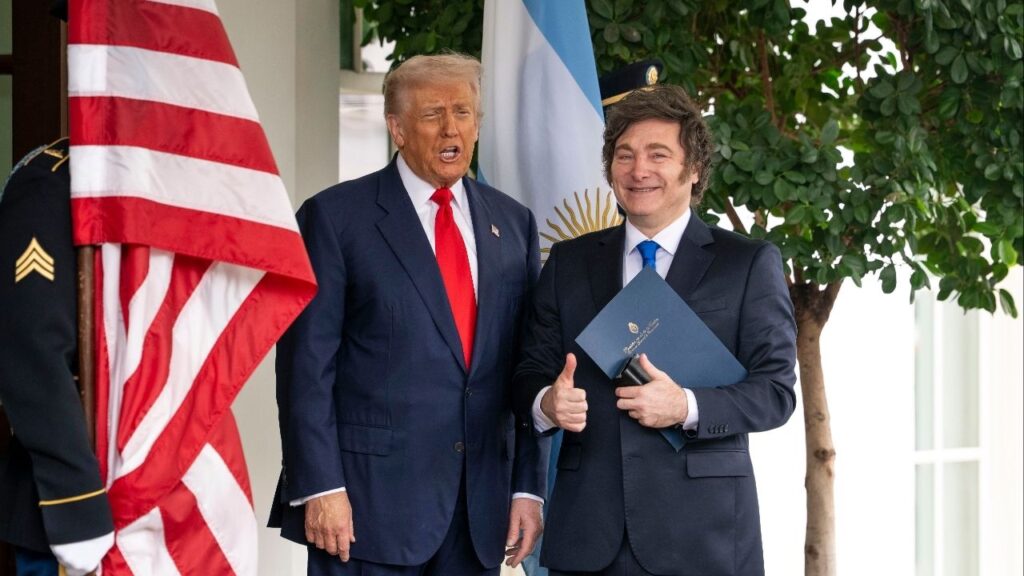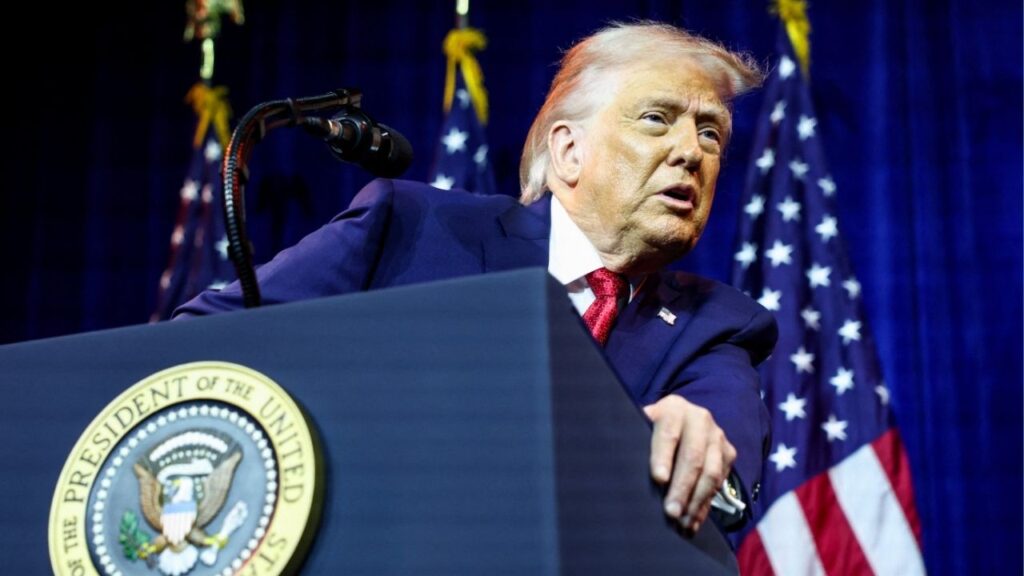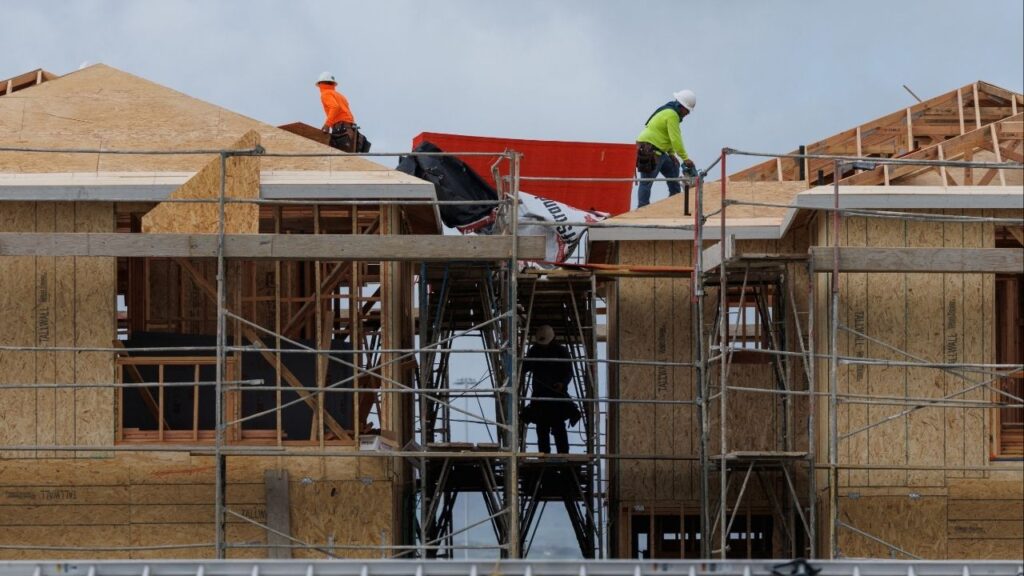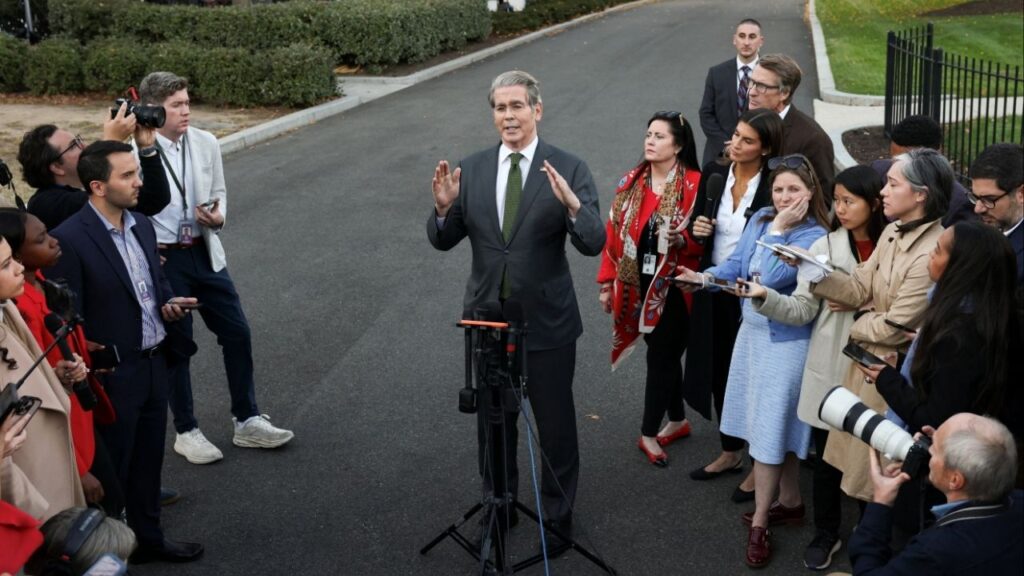Share
|
Getting your Trinity Audio player ready...
|
![]()
■President may invoke Section 212(f) of the Immigration and Nationality Act.
■Biden urges governors to push for resurrection of collapsed bipartisan proposal.
■White House officials face resistance from Justice Department.
WASHINGTON — President Joe Biden told the nation’s governors on Friday that he’s exploring what executive actions he can take to curb migration across the southern border after a bipartisan deal collapsed in Congress this month. He seemed to express frustration at the legal limits of his authority to act unilaterally.
Meeting with National Governors Association
Biden hosted members of the National Governors Association in the East Room, where he implored them to urge their representatives in Congress to resurrect the bipartisan proposal that collapsed within 48 hours. He also sharply criticized Republicans for backing away from the agreement after former President Donald Trump lobbied in opposition to the deal.
“Over time, our laws and our resources haven’t kept up with our immigration system and it’s broken,” Biden told the governors, lamenting that “petty politics intervened” to kill the deal.
Later, during a private question-and-answer session with the governors, he indicated he was looking at what his options are for doing something by executive order.
Response from Governors
Utah Gov. Spencer Cox, the Republican chair of the association, told reporters later that Biden didn’t specify what actions he is considering, but he said the president noted that he was confronting the limits of what he can do without Congress.
“He did say that he has been working with his attorneys, trying to understand what executive action would be upheld in the courts and would be constitutional, and that he seemed a little frustrated that he was not getting answers from attorneys that he felt he could take the kind of actions that he wanted to,” Cox said.
Colorado Gov. Jared Polis, Democratic vice-chair of the governors’ group, said governors got a “general sense that they’re looking into whatever they can do on the executive side. Again, keeping our expectations realistic, that’s going to be more limited than a congressional solution.”
Polis said Biden cited federal courts overruling some of Trump’s immigration actions, and a desire to avoid a similar fate with any action he took.
“And so there was a frustration that that would occur under under his leadership as well, under any president, absent a change in the law,” Polis said. “A lot of the steps we need to take simply aren’t legal under current law.”
Cox added that Biden mentioned declaring an emergency at the border, which in theory could unlock additional federal funds that would be needed to execute any new border crackdowns.
White House Response
White House press secretary Karine Jean-Pierre declined to comment on private conversations.
Among the actions under consideration by Biden is invoking authorities outlined in Section 212(f) of the Immigration and Nationality Act, which gives a president broad leeway to block entry of certain immigrants into the United States if it would be “detrimental” to the national interest.
Trump, the likely GOP candidate to face off against Biden this fall, repeatedly leaned on the 212(f) power while in office, including his controversial ban on travelers from Muslim-majority nations. Biden rescinded that ban on his first day in office through executive order.
But as White House officials contemplate various unilateral options, they have faced resistance from Justice Department lawyers, who have been hesitant on greenlighting any executive actions on immigration that would promptly be blocked in court, according to two people familiar with the deliberations. DOJ declined to comment.
Future Actions
Currently, it’s unclear how Biden would use that presidential authority to deter the migrants arriving at the southern border, and people familiar with the discussions have cautioned that it has not been finalized and that Biden has not signed off on any directive. The White House could also ultimately choose not to take any executive action at all.
“No decisions have been made on this,” Jean-Pierre said Friday.
Cox noted that as he’s pressed Biden to act unilaterally, ultimately, more comprehensive solutions will depend on Congress.
“There’s some disagreement on how much the president can do and can’t do and I pushed back on the president on that,” he said. “But we I think there’s also general consensus that the Congress does have to do something.”
He said if Congress can’t back the comprehensive deal, then perhaps pieces of it, like boosting money for border patrol agents and asylum officers, could be tacked on to coming spending bills.
RELATED TOPICS:
Categories

Bitcoin Bounces Back as Risk Assets Stabilize

Renovations to Close Downtown Fresno Library for Two Years

Oil Prices Climb Over $1 on Worries Over Iran-US Talks

Argentina and US Sign Sweeping Trade Deal as Alliance Deepens

Fresno Teen Killed in Pedestrian Crash on Highway 99 Identified














